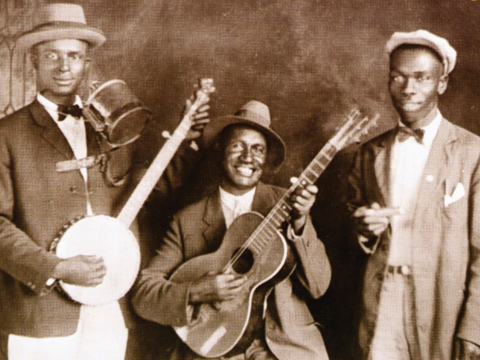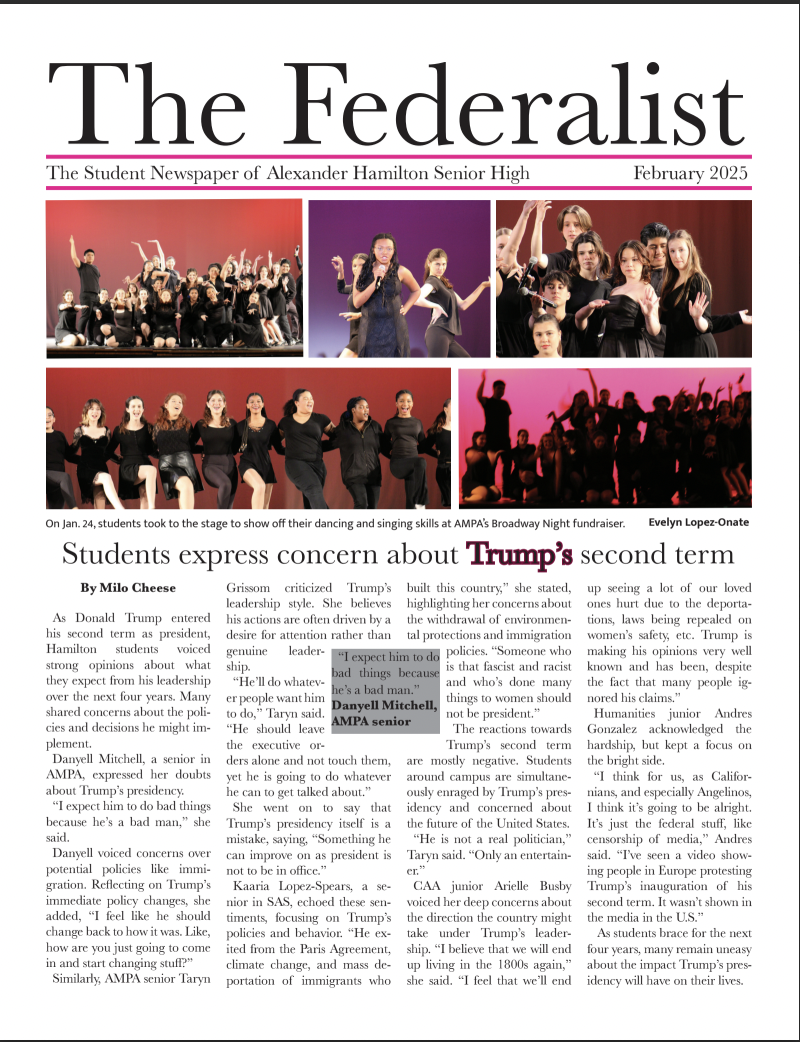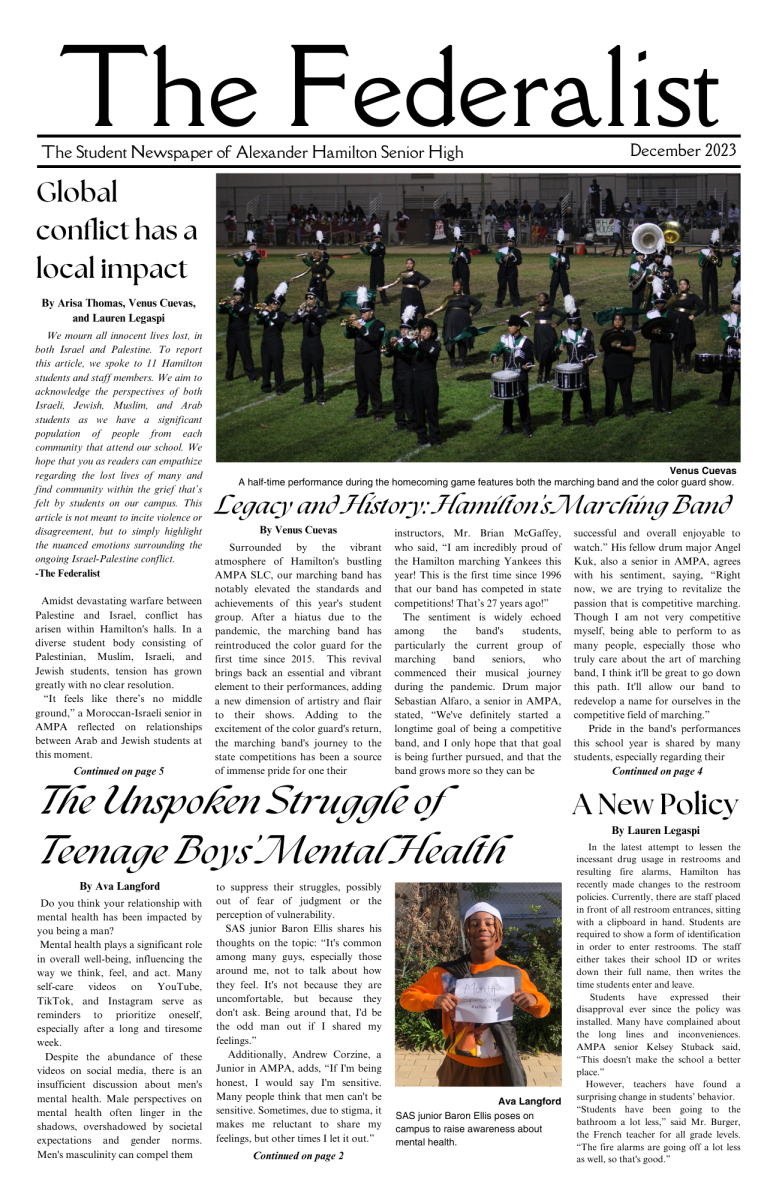Movies have influenced cultures, movements, and societal ideals, but is a movie’s impactfulness considered when it is voted to win awards?
Recently, Anora, a dramatic-comedy feature film won Best Picture, along with many other categories, at the Oscars. Many people love the film, and personally, I watched it twice because I liked it as well. However, while its humor, energy, and entertaining nature makes it a fun watch, the movie lacks that “best picture” factor.
Films have many different purposes, such as making us feel emotions, immersing us in a story, entertaining us, making a difference in the world, and so many more that I won’t bore you with. Personally, I believe that no matter what category a film falls into, it always has the opportunity of being meaningful and communicating an important message.
The Oscars is one of the most prestigious award ceremonies in America, and therefore has a large impact on film culture and what films are being seen by the world. That’s why I think that the people who vote for a film to win Best Picture have a moral obligation to expose films that have a positive impact on our culture.
Now, I’ll just say that I didn’t think Anora was a very purposeful film. Although it was very funny and entertaining and active, I didn’t leave the theater with a new perspective on any of the film’s topics. Of course that is totally subjective, but this is an opinion.
I feel that since the story revolved around a sex worker and that this group of people are not generally regarded with much humanity or empathy, the film had an opportunity to paint this group in a new light, a real light. They are human beings. Not objects.
The problem for me is that the character of Anora was only really shown to have some humanity in the end of the movie, and even that scene didn’t make up for the portrayal of all the other female characters. The writing of the female characters felt very one dimensional and linear, and honestly made them appear quite stupid. The only exchanges between the women who worked in the club were either gossip or insults or even fights, and no deeper level was ever achieved except for during Anora‘s final scene. This just feels like a huge generalization of this group, and a stereotyped portrayal of them.
Sean Baker, the writer of Anora, could have pushed that “stereotypical sex worker” character to the side, and made the women more layered, complicated, and real; have them be a separate person from their work. Even Anora herself felt one dimensional. She was just yelling throughout the whole film and the writers waited till the last few minutes to add another layer to her personality—by then, it’s too late to weigh it against the way she acted for the whole film before that.
Not too long ago, I watched an Italian film—Life is Beautiful—and that film really demonstrated exactly what I am trying to convey. It was an absolutely gorgeous film that one hundred percent changed the way I look at many things in my life, and I walked away feeling extremely nourished. Anora, although it was entertaining, eventful, and funny, didn’t do that for me.


































Hawley Anderson • May 9, 2025 at 12:35 pm
Wonderful and insightful review. I agree and I wonder if it had been a female director or a female writer, what they could have brought in complexities. Not to say that a male writer, can’t create a deep Female character, but rather that Sean filled all key positions himself. I wonder at what a more collaborative creative process would have produced.